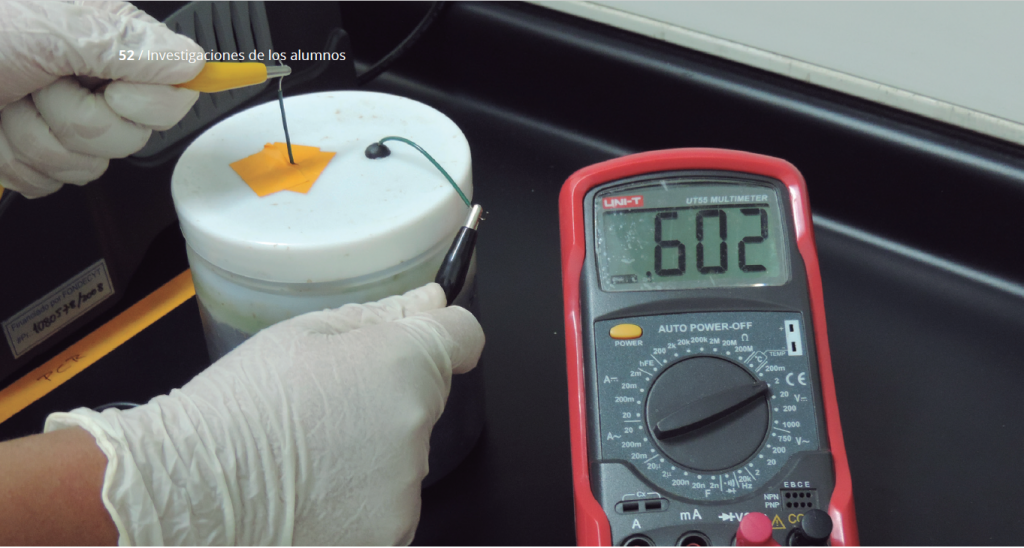Natalia Tapia, Claudia Arauzo, Francisco Guzmán, Ignacio Vargas.
JI3 2016, number 6, pages 52-61.
Abstract
Microbial fuel cell (MFC) is a novel biotechnology to produce clean energy by transforming waste and/or organic matter into electricity. Recently, MFC devices have been used as bio-batteries to power sensors and monitoring chemical parameters, such as temperature, and dissolved oxygen in water, soil and sediments. However, the applicability of this technology is restricted by the electrical conductivity of the medium. The objective of this paper is to evaluate the use of silica as a strategy to optimize the performance of a MFC device by improving the transport of ions between electrodes in soils with low conductivity. Although the results showed no significant differences in power generation between reactors with and without silica addition, the soil enrichment accelerates the start-up of the reactors together with an increase in the amount of chemical energy converted into electricity. Hence, silica enrichments of soil could be used to improve the early performance of MFC devices in urban soils with low conductivity and high organic matter content.
